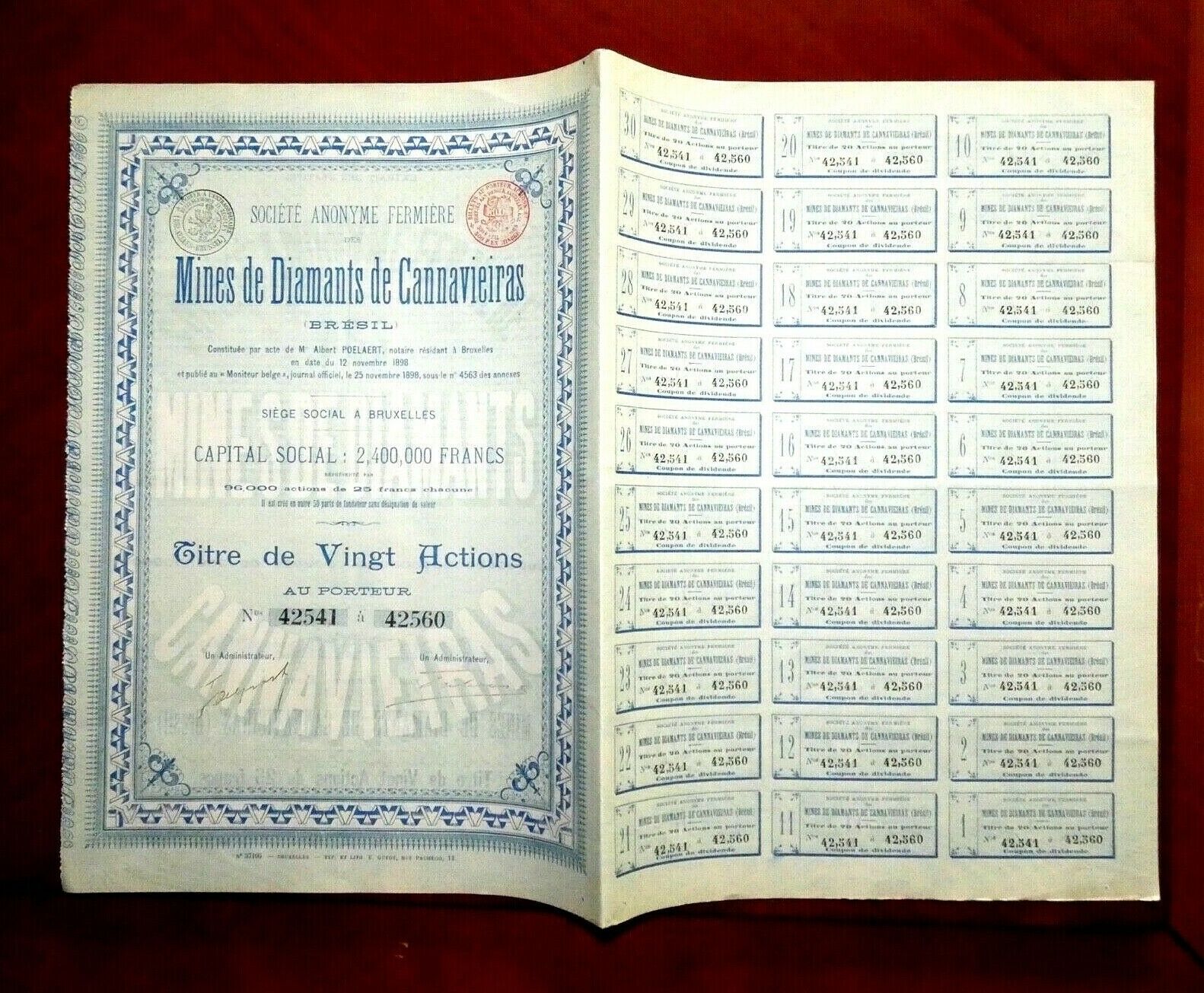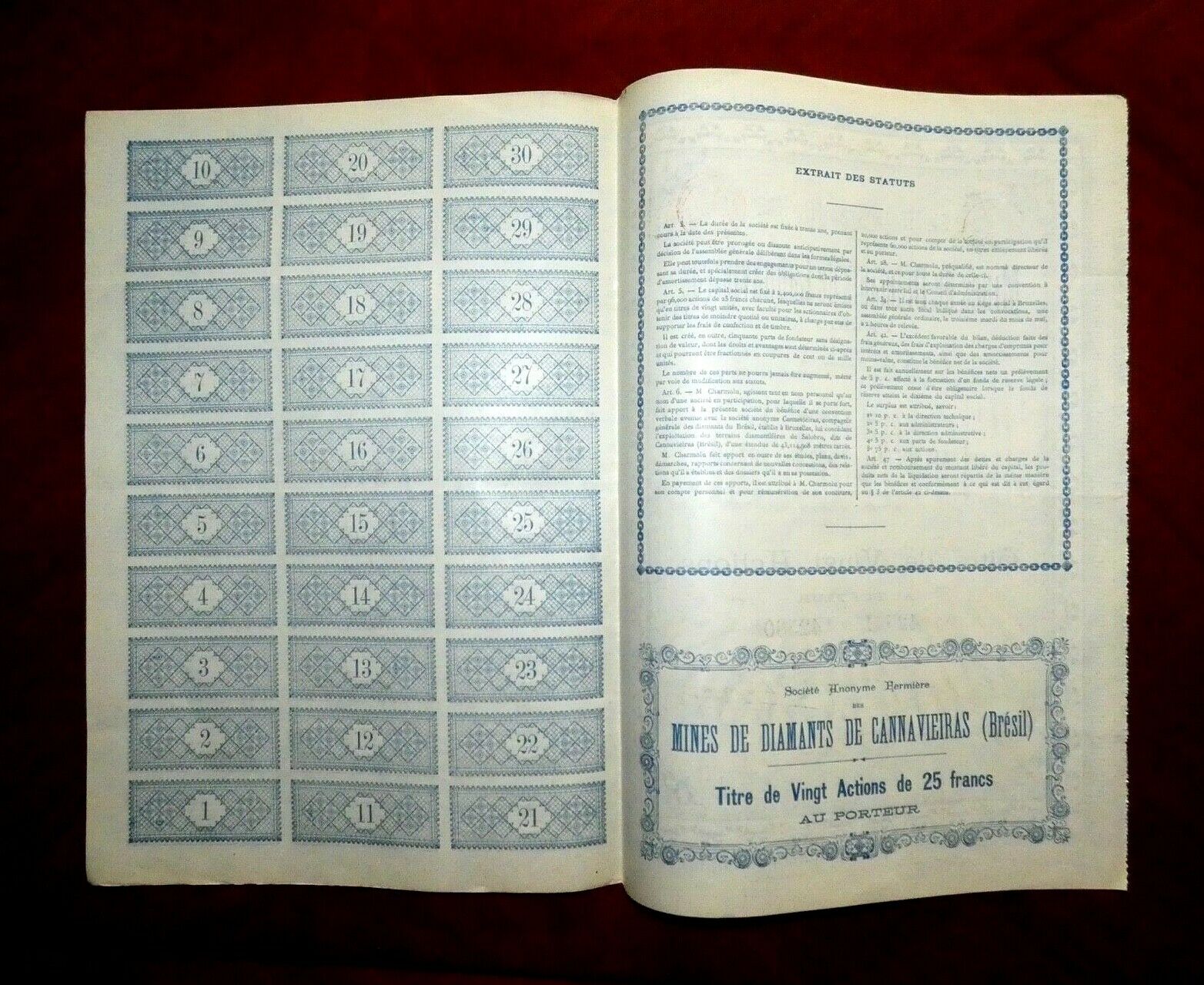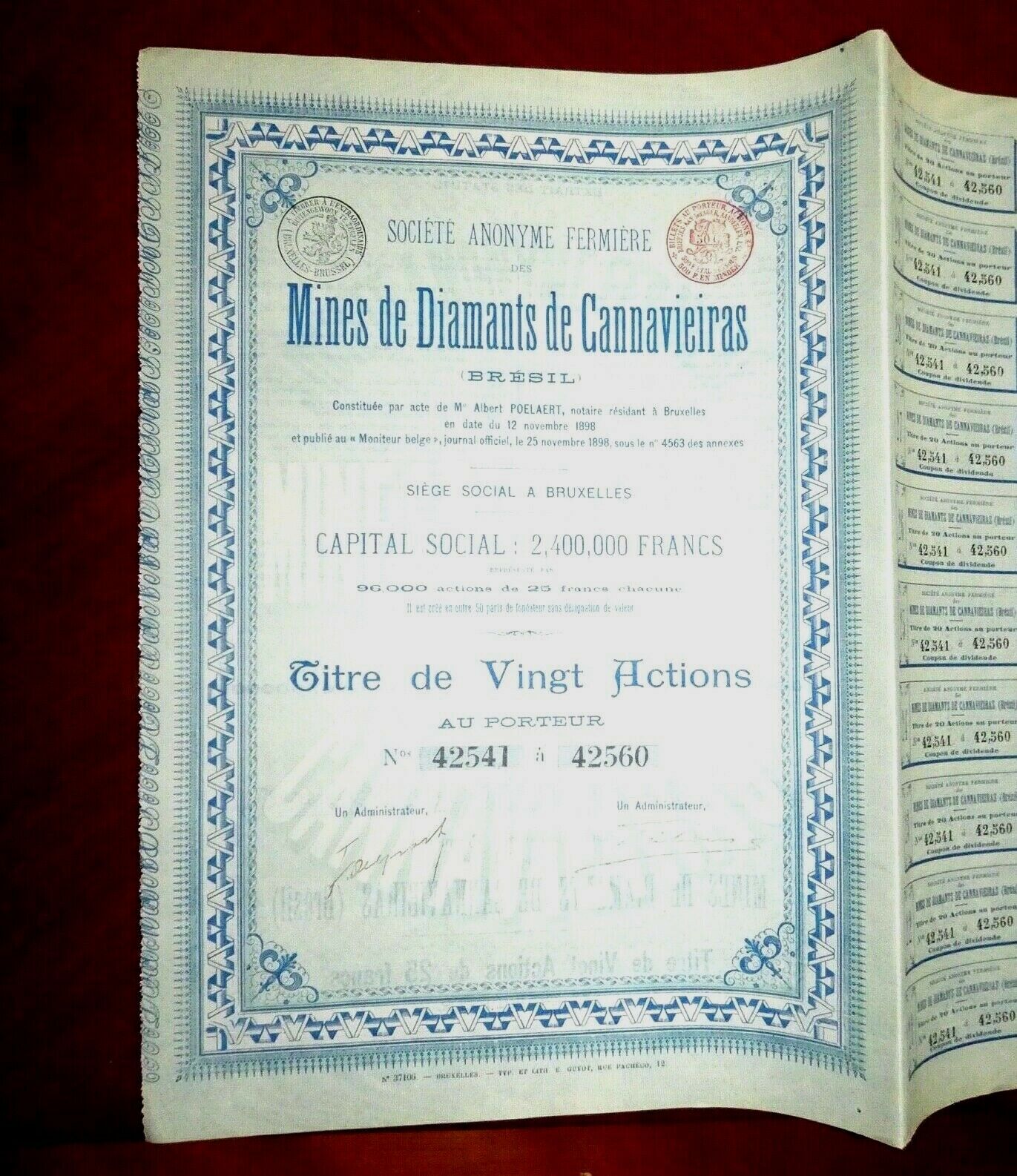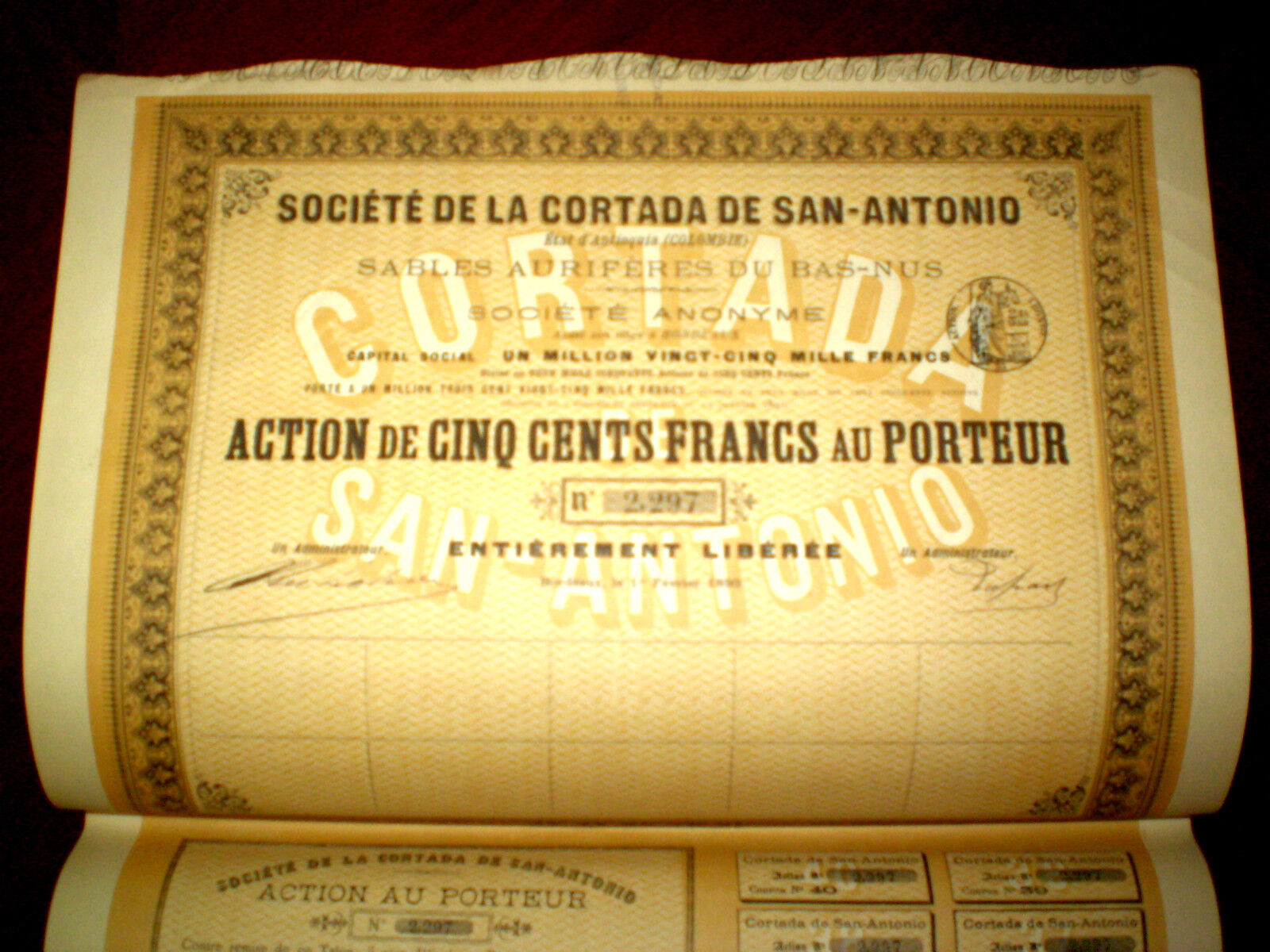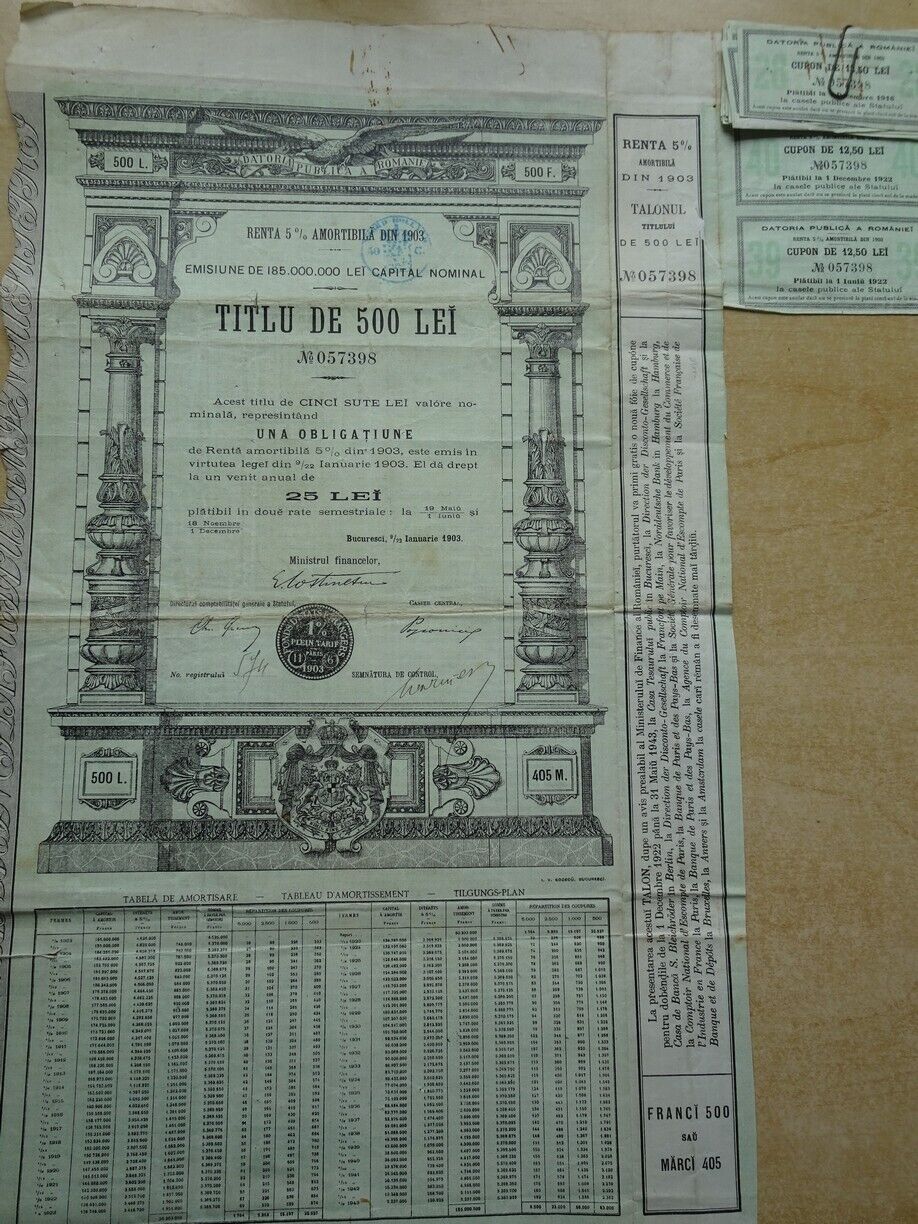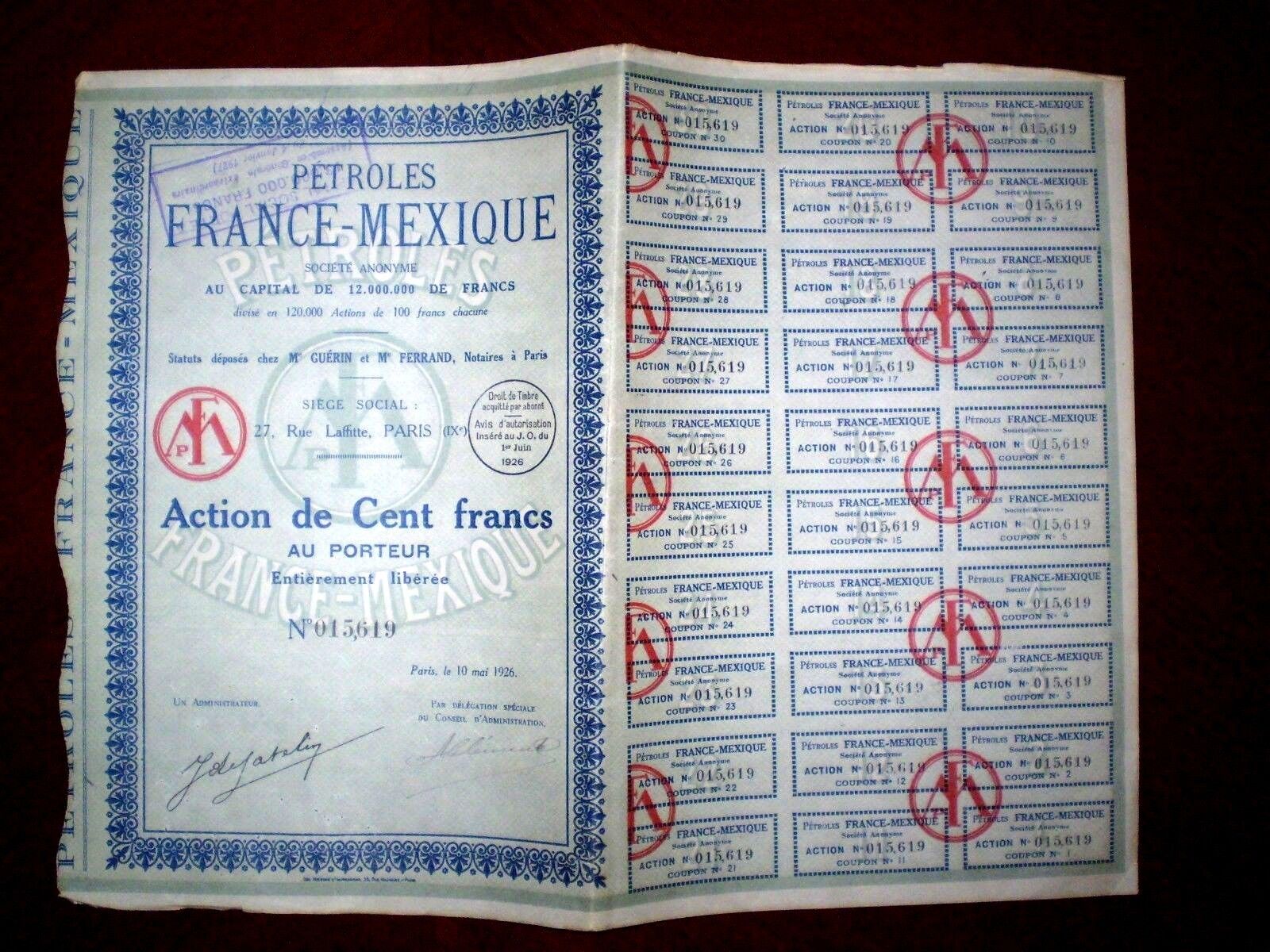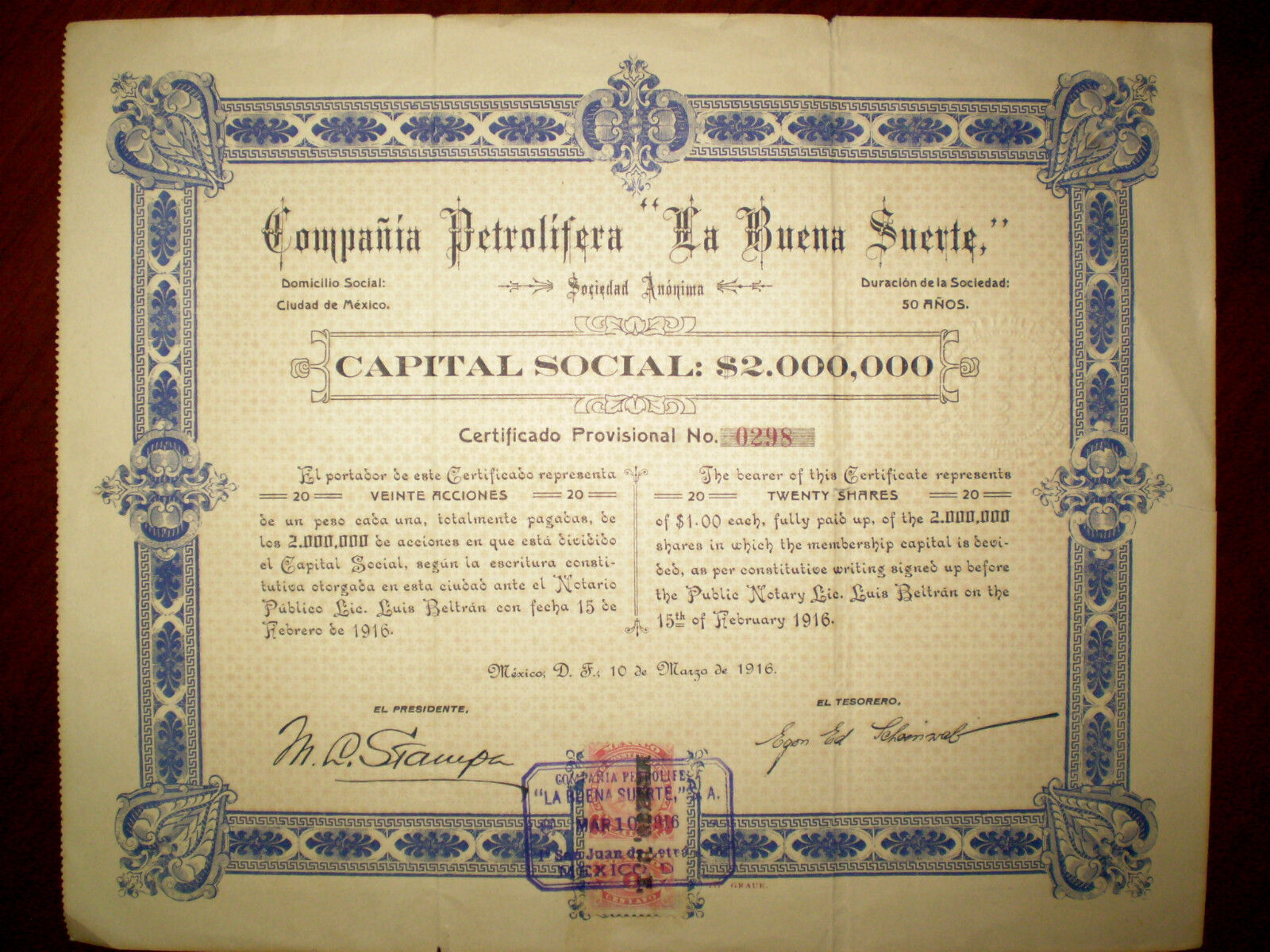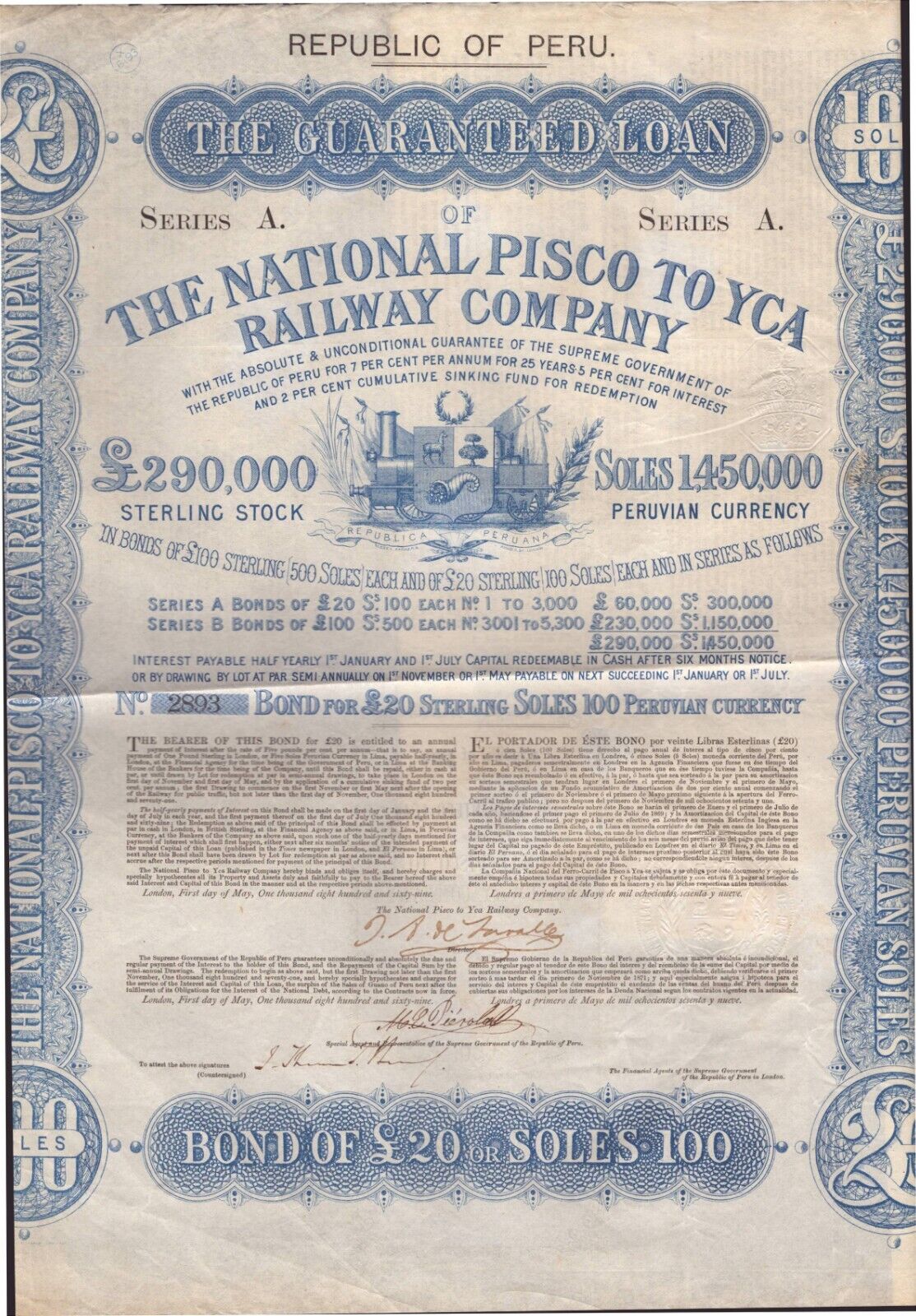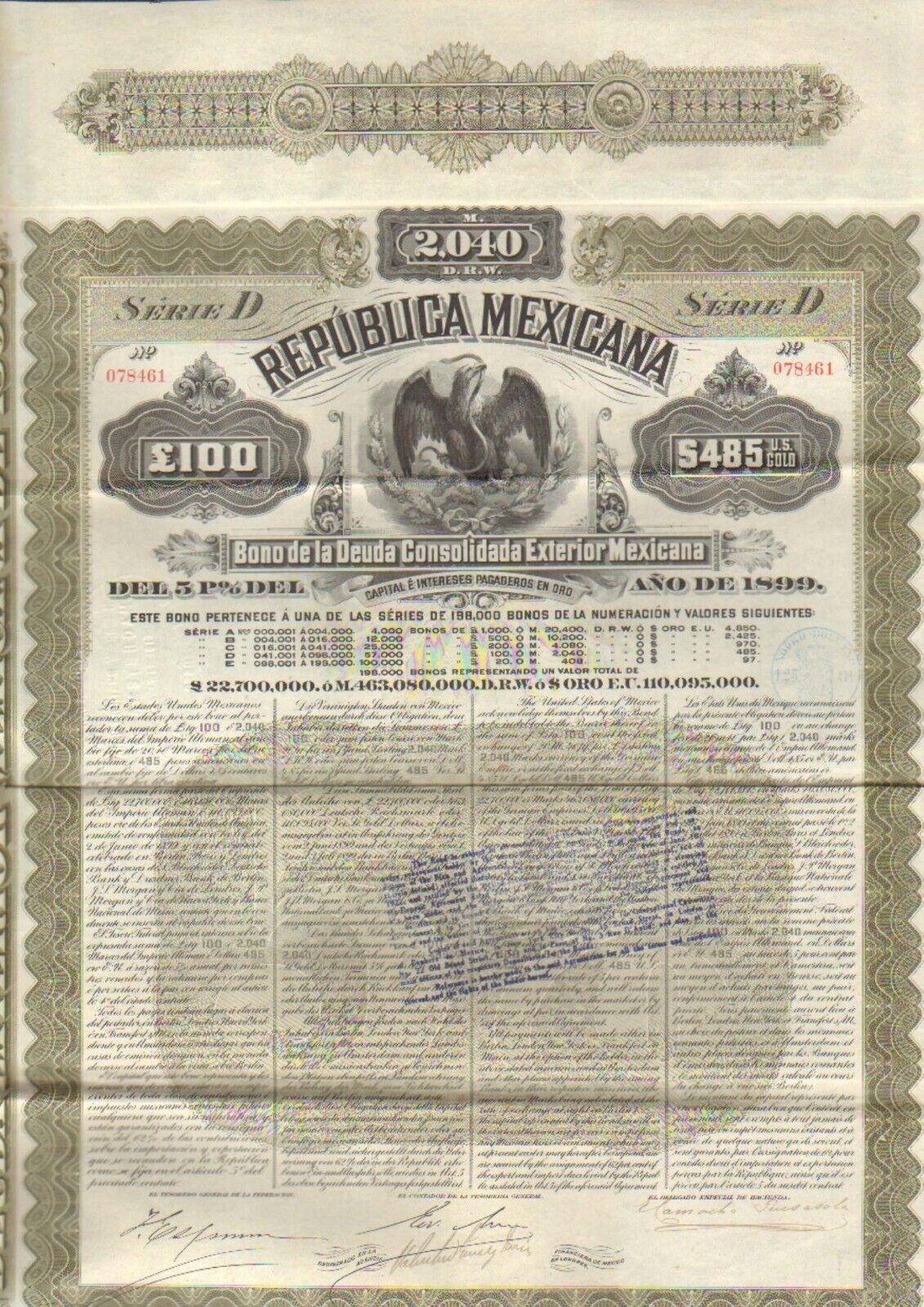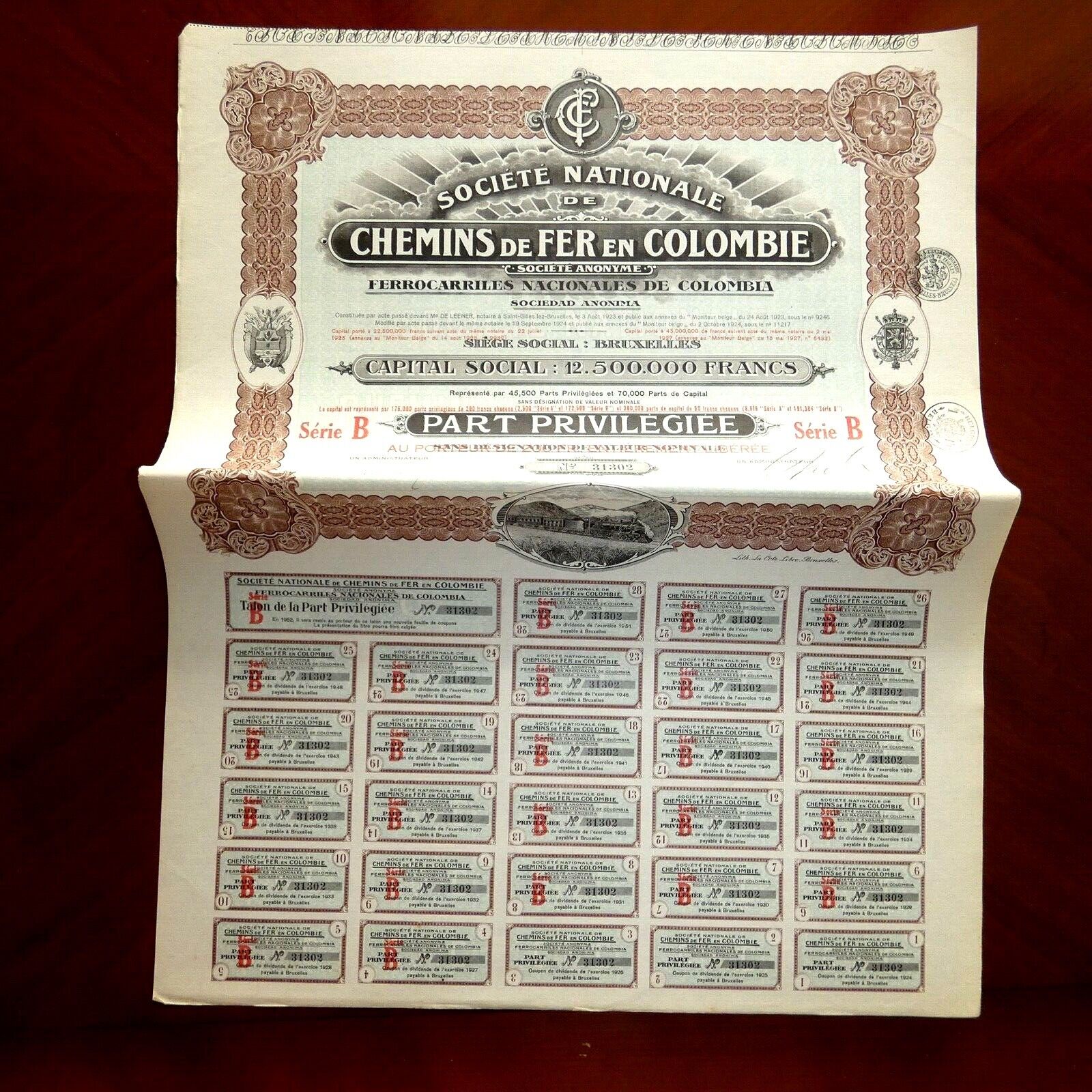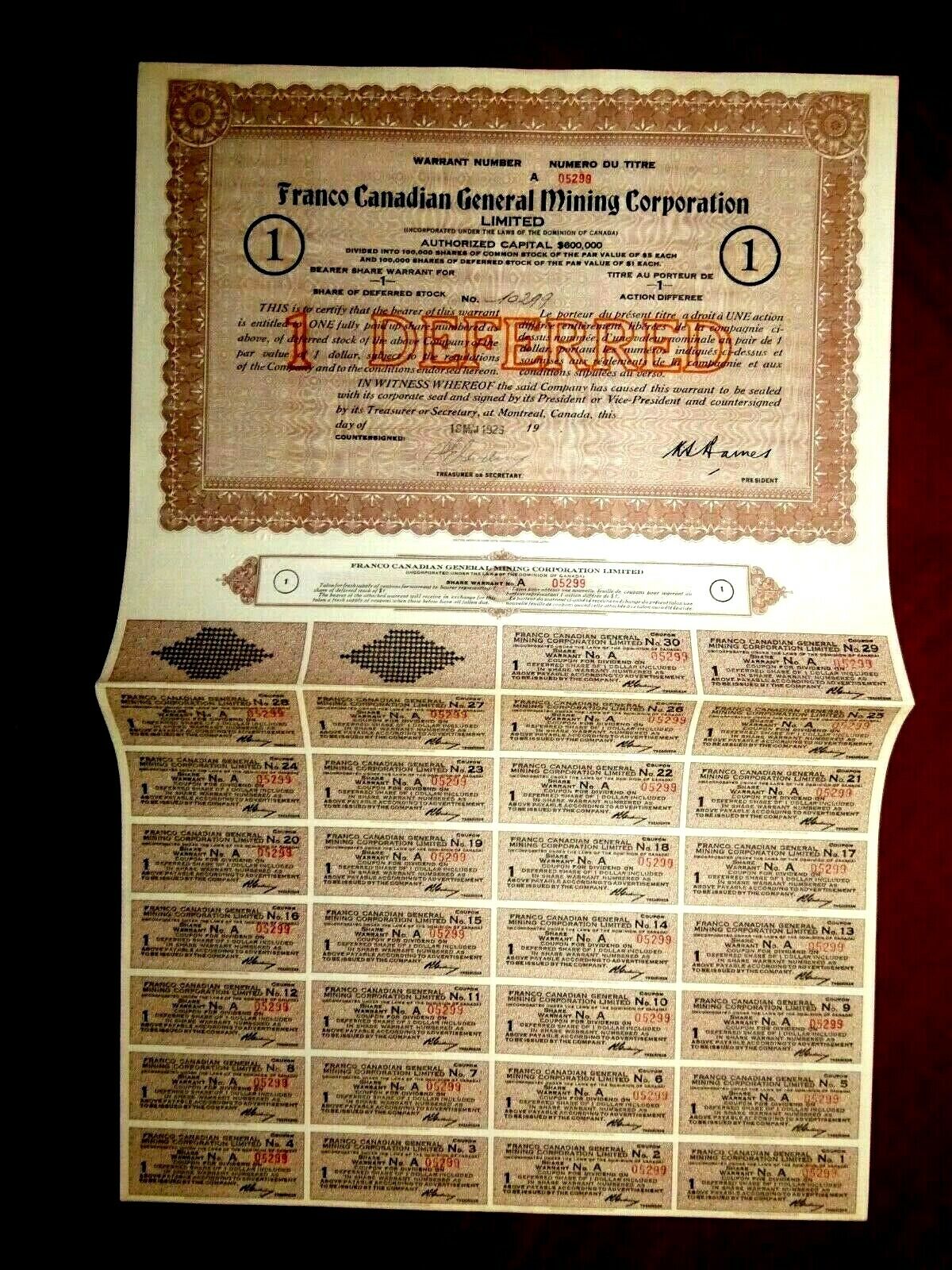-40%
Mines de Diamants de Cannavieiras, share certificate 1898 diamond mine Brazil
$ 155.76
- Description
- Size Guide
Description
One bearer certificate of the:"Mines de diamants de Cannavieiras", single certificate of 25 shares of 25 Belgium francs each 1898 Brazil/Belgium Condition (opinion): Good+/Very Good (VG) .See scan.Printer: Typ.et Lith.E Guyot Brussels.Size:34 cm 24 cm (size without copupons).Uncancelled .One hand signature. Watermark paper .Diamant mining at Salobro (Cannavieiras) Brazil. Founders: Mr Charmolu.
See some information from the web below
.
-----------------------------------------------------------------------
Postage, including packing material, handling fees : Europe: USD 4.10 / USA $ 4.90 Rest of the World: USD 4.90
FREE of postage for any other additional banknote , stocks & bonds or other items
.
Only one shipping charge per shipment (the highest one) no matter how many items you buy (combined shipping).
Guaranteed genuine -
T
he serial number of this item
may
differ
from that shown
in
the
picture.
One
month
return
policy
(retail sales).
Customers are invited to combine purchases to save postage.
Full refund policy ,including shipping cost,guaranteed in case of lost or theft after the completion of the complaint with Spanish Correos for the registered letters (normally purchases above $ 40.00).
Old document for collection or historical purposes only.
Banknote Grading
UNC
AU
EF
VF
F
VG
G
Fair
Poor
Uncirculated
About Uncirculated
Extremely Fine
Very Fine
Fine
Very Good
Good
Fair
Poor
Edges
no counting marks
light counting folds OR...
light counting folds
corners are not fully rounded
much handling on edges
rounded edges
Folds
no folds
...OR one light fold through center
max. three light folds or one strong crease
several horizontal and vertical folds
many folds and creases
Paper
color
paper is clean with bright colors
paper may have minimal dirt or some color smudging, but still crisp
paper is not excessively dirty, but may have some softness
paper may be dirty, discolored or stained
very dirty, discolored and with some writing
very dirty, discolorated, with writing and some obscured portions
very dirty, discolored, with writing and obscured portions
Tears
no tears
no tears into the border
minor tears in the border, but out of design
tears into the design
Holes
no holes
no center hole, but staple hole usual
center hole and staple hole
Integrity
no pieces missing
no large pieces missing
piece missing
piece missing or tape
Some information from the web.:
Diamonds were first discovered in Bahia in 1840 at Santo Ignacio at the extreme northwest of the present region, but not until 1844, when discovery was made by a slave on the banks of the Mocojé river, the present location of São João do Paraguassú, was any great impetus given to mining. The mining area has gradually extended, but no new section was discovered until 1881 when by accident a find was made at
Salobro, the diamonds of which usually take the name of Cannavieiras
, the port to which they pay tribute.
The quality of Brazilian diamonds varies greatly with the locality in which found, while there is always a considerable difference between those of the same mine. In general, those from Minas Geraes are fairly assorted in quality, about
Salobro (Cannavieiras)
the beautiful whites and priceless blue whites predominate, while the other Bahia stones are inclined to be more off-colored and frequently contain black specks, thereby lowering their value.
-----------------------------------------------
Equally important with the fields of Minas Geraes are those of Bahia. Though divided into a number of districts there are two natural divisions only, viz.: the section about the Paraguassu river and its tributaries and the tributaries of the Rio Sao Francisco, and another and smaller area along the valley of the Pardo river near the coast south and east of the Paraguassu fields. This is called the
Cannavieiras
district, from the port of that name by which entry to it is made. At present the diamond-mining industry is practically confined to the States of Minas Geraes and Bahia, the fields of the latter being more important because carbon is found in them with the diamonds.
------------------------------------------
The State divides the Bahia diamond region into 14 districts : Lencoes, Andarahy, Chique-Chique, Santa Isabel, Cravada, Lavinha, Campestre, Morro do Chapeo, Born Jesus, S. Ignacio, Chapeda Velha, Paraguassu, Sincorá and
Cannavieiras
, all but the latter being on the Paraguassu river and its tributaries and the tributaries of the Rio Sao Francisco. Not only are the Paraguassu fields much more extensive, but they are also more productive. The diamonds from that section are also finer, but not as perfect usually as those of the
Cannavieiras
district. The most productive part of the Paraguassu fields is about four days journey from Bahia city. The route is by small steamer across the bay and up the Paraguassu river about 45 miles to Cachoeira, a journey of six to eight hours, then by train next day 155 miles to Bandeira de Mello, consuming ten to twelve hours, from which point there is a two days' journey of 64 miles by mule to Andarahy.
-----------------------------------------
The
Cannavieiras
district is quite distinct geographic-ally from the other Bahia districts, which are all, though divided into districts surrounding as many towns as centers, practically the same fields. This came to be known as a diamond district about 1881. It is reached by the Pardo river in canoes 56 miles to Jacaranda, and from there by mule-back, 12 miles higher up the river to Salobro. The early workings were confined to the river and the immediate neighborhood, and the country has not been as widely prospected as in other fields, owing to a lack of water in many directions. The diamonds are usually small and clear, but do not average as good in quality as those of the Paraguassu districts. Little or no carbon is found.
----------------------------------
The production of the mines of
Salobro, Cannavieiras
district, for the ten years ending 1890 was estimated at 193,644 grams. Although this region is not hilly, it is difficult to work, as it is covered with a dense forest growth, and the diamondiferous deposit lies usually about two feet under the surface. The conglomerate which carries the diamonds outcrops in the beds of the Salobro river and its tributaries, and some think that the whole region, back to the Pardo and Jequetinhonha rivers, has an understratum of the diamondiferous deposit. Several French and English companies have worked these Salobro mines for years at a profit.
------------------------------
222 THE MINERAL INDUSTRY. of square miles, and are only locally profitable. The carbonados, or black dia- monds, are mined in the State of Bahia, and the output passes-through the hands of a single firm in the city of Bahia. The finest of these carbonados come from
Saloboro,
in the Serra Itaraca, near
Cannavieiras,
in the southern part of the State of Bahia, and from Lencoes, Sincora and Santo Ignacio, 306 km. west and a little south of Bahia. There are mines in other parts of the State, some located within ten leagues of the city of Bahia. It is an interesting fact that the rich Salobro district, 70 km. from
Cannavieiras,
was only discovered as recently as 1881.
------------------------------------------
Deshacer cambios
Your browser does not support JavaScript. To view this page, enable JavaScript if it is disabled or upg
